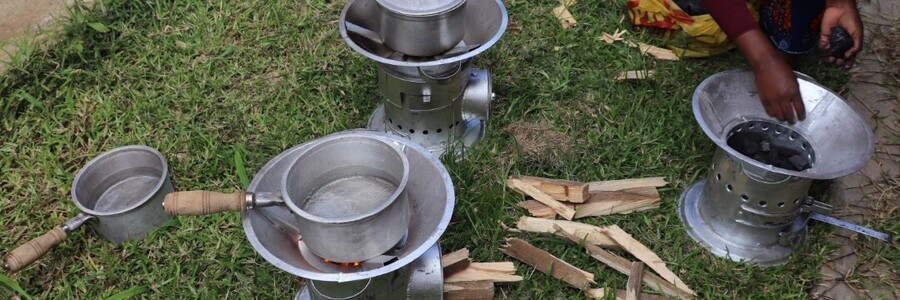Charcoal as an important source of energy
Approximately 2.7 billion people cook with wood or charcoal every day. In developing countries, charcoal is often the most important household energy in cities. The problem is that charcoal is not renewable. Forests are destroyed for its production and thus carbon sinks that absorb CO2 annually. To produce one ton of charcoal, up to 12 tons of wood are needed - A frightening greenhouse gas balance of about 17 tons of CO2 per ton of charcoal is the result!
But not only the forests disappear due to the production of charcoal, with them reliable rainy seasons as well as reservoirs for water are lost. As a result, the groundwater level is lowered, which leads to a drastic reduction of water resources. Soils are degraded, crop yields are reduced and, in connection with this, there is a rural exodus to the city.
Nafagaz stove as a sustainable alternative
To counteract this scenario, we use "Nafagaz" stoves in our international conservation projects. These are small pyrolysis stoves for cooking, using wood gas from dry biomass. Dry small branches can be used, but also crop residues, rice husks or invasive plant species in the form of non-timber briquettes that have no other use. One kilo of briquette saves the use of one kilo of charcoal and thus the emission of 17 kilograms of CO2! The total charcoal consumption can be reduced by at least 50% when using the Nafagaz stoves - a huge potential to save the still existing forest resources.
In addition to environmentally friendly low-energy cooking, there is another advantage of Nafagaz stoves: during the pyrolysis process in the stove, biochar is produced. This can be further used for cooking, for sale or for soil improvement. In the latter case, the long-term storage of carbon in the soil simultaneously contributes to climate protection.
Help us train tinners in Malawi!

